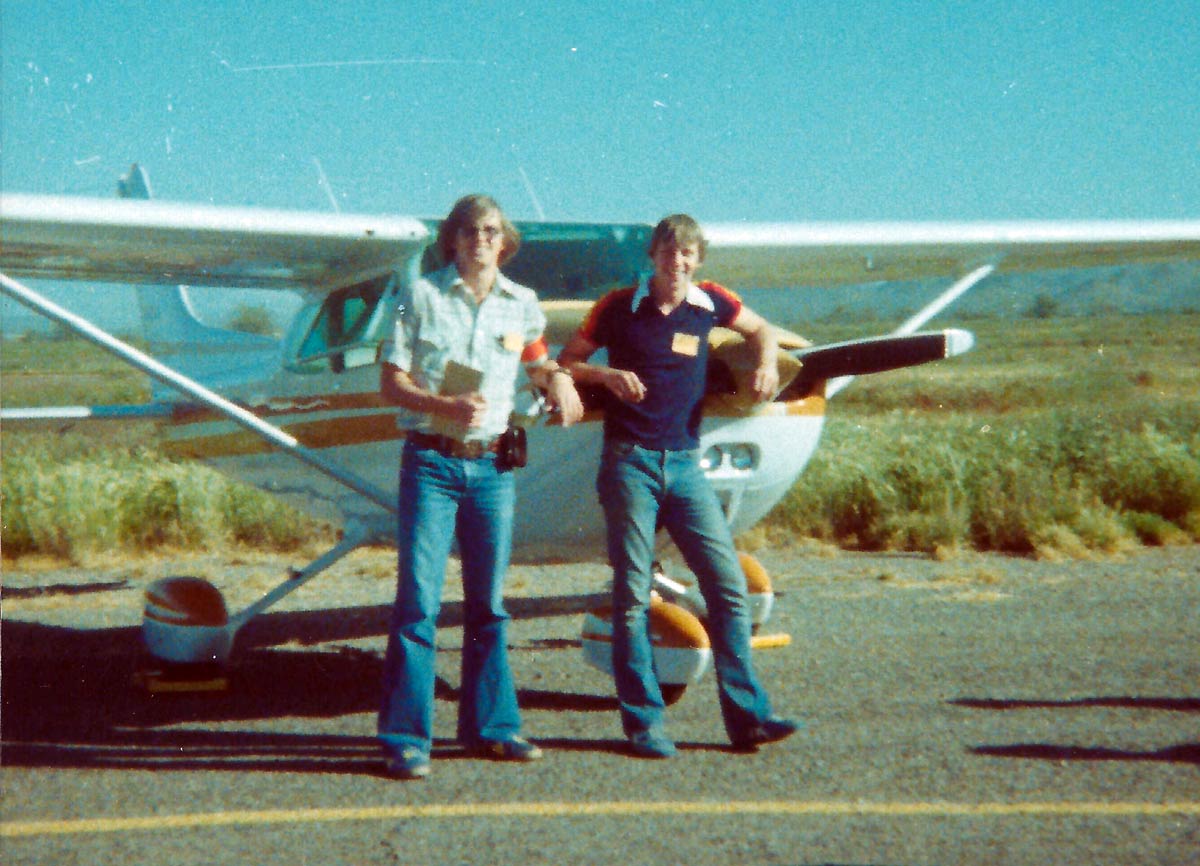In high school, I was the kid who kept to myself. Being on a flight team or helping start and run one wasn’t part of who the “high school me” was. But the Prescott Campus was a magical place. We were all new students, with no upperclassmen to pick on us. I knew this was a new start for me and a time to take on new challenges.
During the fall of 1978, then Dean of Students Dan Reece attempted to start a flight team. Dan was retired Air Force and had a lot of experience with the National Intercollegiate Flying Association (NIFA). When Dan asked me to help run it, I was a bit intimidated, but I said, “Yes.”
We soon learned that the university wasn’t going to support us financially, not even with airplanes. We were considered to be “unprofessional” and “weekend warriors.” Those were then President Jack Hunt’s words. That left us with two choices: figure it out or fold. You know the choice we made.
We had many conversations about money and how we were going to get it. We sold donuts at the flight line, held car washes and cut wood. We held the first dance on campus and many more after that.
We found an old mirror ball on campus with many mirrors missing. Our solution was to break mirrors that we “found” around campus and glue the shards of glass to the ball. The mirror ball hung proudly from the celling at all of our dances.
Adding to our challenges, on March 15, 1979, all of the flight instructors walked off the job, and Dan Reece, our founding adviser, left the university. It was a very uncertain time. Wayne Hanks, who was in charge of safety at the university, stepped up to be our adviser, and he helped us get to the regionals in Deer Valley that year.
For that first competition we used rented airplanes. We expected to camp at a KOA, but when we discovered it was paved and wasn’t set up for tents, we elected to stay at a Best Western.
We were competitive and surprised a few teams with how well we did that year. Our success motivated us to work harder.
The next two seasons, 1979-80 and 1980-81, Ben Beagle came on board as our faculty adviser, another pivotal moment in our history. Ben’s calm nature, even temper and wisdom guided us then and future teams for about 10 years.
One new development was the university allowed us to use the Grumman Tigers, which looked great sitting on the ramp at regionals. It was our first step toward support from the university, and we were knocking on the door of placing for nationals. In our third regionals, spring of 1981, we tied for third but lost the tiebreaker.
I graduated in December 1981, but the team has continued to achieve, as I hoped and knew in my heart that it would. I always imagined the university would properly support the team. It has since 1987-88, and it has allowed the team to operate independently.
As of May 2018, the Golden Eagles have won 34 regional titles (31 consecutive) and 12 national championships.
I believe that how we started 40 years ago began the long Gold line that connects us today. And that the struggles and challenges we faced made us better — and were maybe even necessary. They gave us a common cause of survival and success.
This thread of motivation and dedication — and maybe a little defiance — has been passed from team to team. The team today has the responsibility to future teams to pass on this spirit as only it can. Your legacy will be written by the teams that come after you are gone, because of what you passed on.
Forever a Golden Eagle!
Editor’s Note: Excerpted from a speech delivered at the 40th anniversary reunion of the Golden Eagles Flight Team, held Feb. 23, 2018. Overley earned a B.S. in Aeronautical Science from Embry-Riddle’s Prescott Campus and was the first president of the Golden Eagles Flight Team (1978-79). Today, he is a senior captain on the Falcon 900EX Easy and Cessna Citation Sovereign, at Cintas Corporation in Cincinnati, Ohio.
